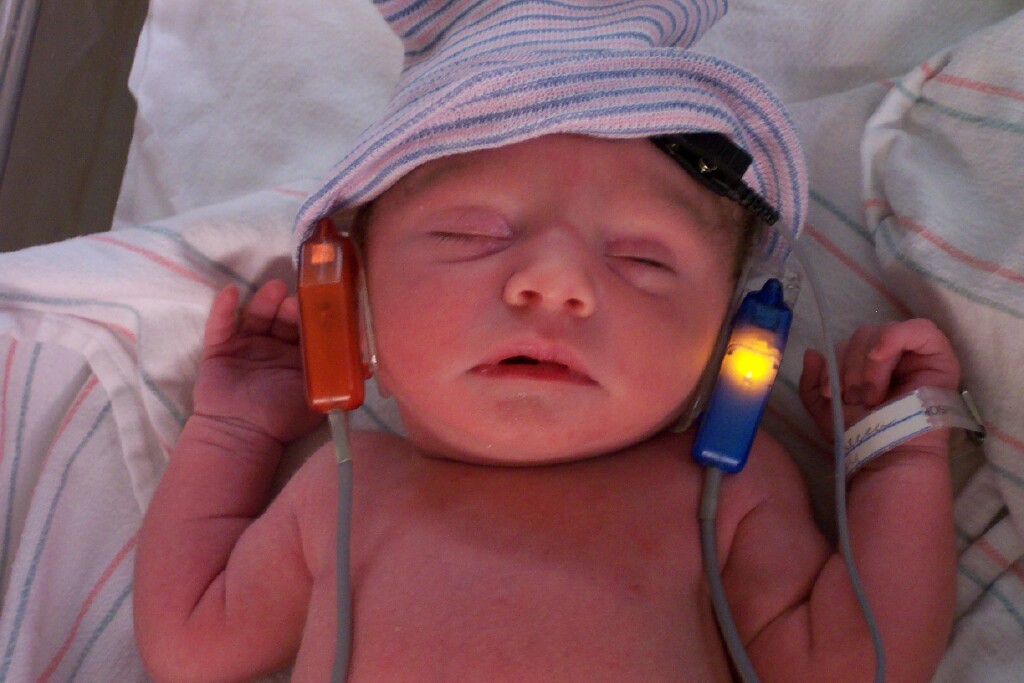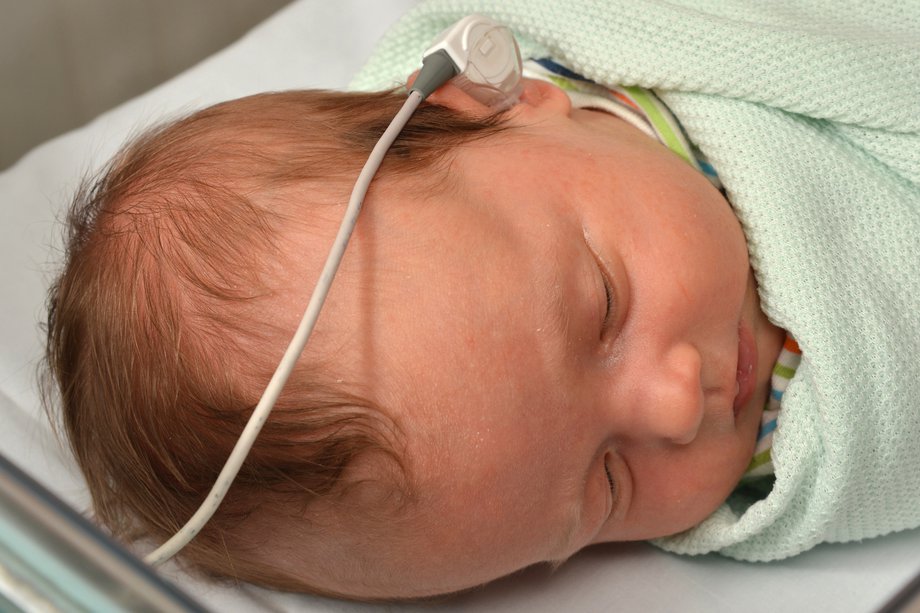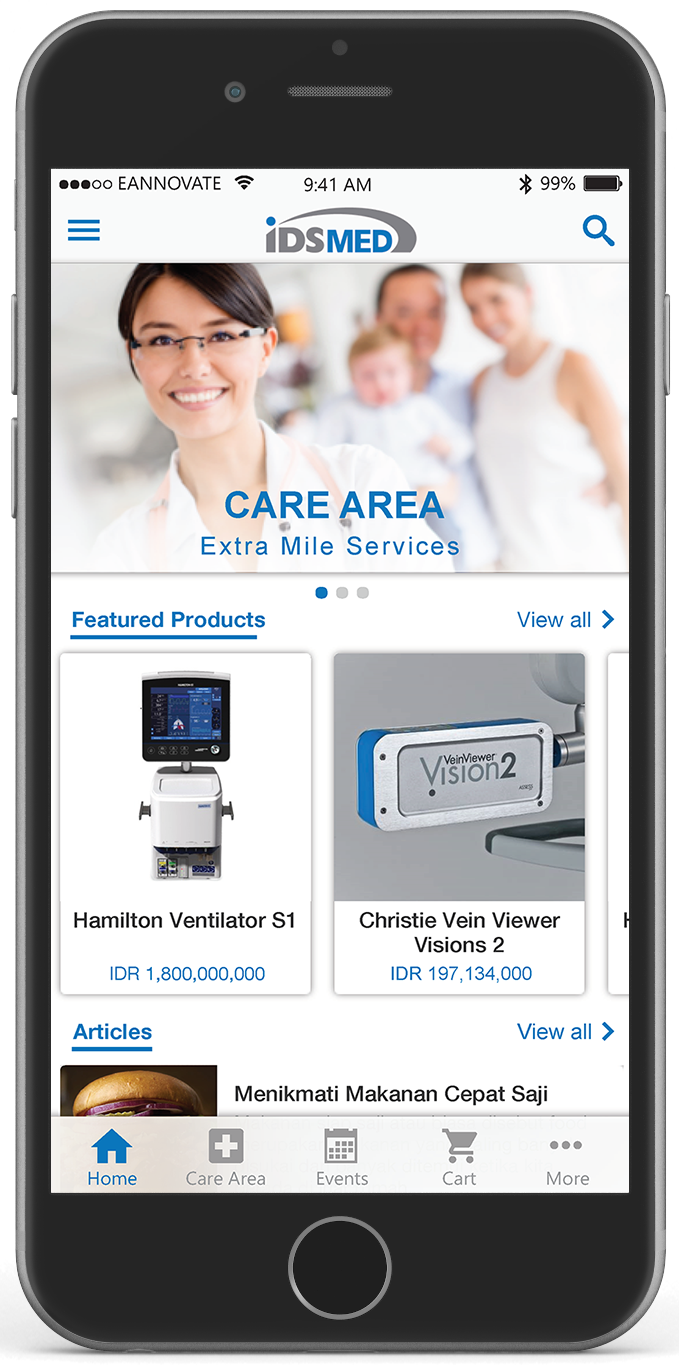Did you know a hearing impairment in newborns can affect one to six per 1,000 newborns?
The number will increase in High-Risk Newborns, where infants have greater chance of complications because of conditions that occur during fetal development, pregnancy conditions of the mother, or problems that may occur during labor and birth – for example, premature newborns. Some complications are unexpected and may occur without warning. In several cases, premature newborns might be diagnosed having infection and need an antibiotic treatment. There are some antibiotics – if given in high doses and in certain period of times – may cause a hearing impairment.
Premature newborns are obliged to pass through various of screenings in order to have an early detection of the health issues – one of them is hearing screening. In the United States, hearing screening is routinely practiced to the newborns, including premature newborns. Unfortunately, in Indonesia, this procedure is considered inessential, since some hospitals still face shortage of workforce, equipment, and/or fund.
Premature newborns and term newborns who require Neonatal Intensive Care Units care are at a greater risk for hearing loss than well newborns for several reasons, so it is critical that they receive a hearing test before hospital discharge:
- Prematurity: Premature birth is a risk factor for hearing impairment.
- Low birth weight: Babies born weighing less than 2500 grams are considered low birth weight infants and are at an increased risk for hearing impairment.
- Medications: Some medications used in the NICU can harm the ear, particularly, antibiotics like gentamicin.
- Jaundice: Severe jaundice increases an infant’s risk for hearing impairment. Premature infants have severe jaundice more often than well infants.
- Infection: Babies have an increased risk of hearing impairment if their mothers had an infection in the uterus before delivery. Infants who have been diagnosed with meningitis or other types of infection are also at an increased risk for hearing impairment.

One way to determine if your child’s hearing is developing appropriately is by monitoring important speech and hearing milestones, such as those listed below from American Speech-Language-Hearing Association (ASHA).
From birth to four months, your infant should:
- Startle at loud sounds
- Wake up or stir at loud noises
- Respond to your voice by smiling or cooing
- Calm down at a familiar voice
From four months to nine months, your infant should:
- Smile when spoken to
- Notice toys that make sounds
- Turn its head toward familiar sounds
- Make babbling noises
- Understand hand motions like the bye-bye wave
From nine to 15 months, your infant should:
- Make various babbling sounds
- Repeat some simple sounds
- Understand basic requests
- Use its voice to get your attention
- Respond to name
From 15 to 24 months, your infant should:
- Use many simple words
- Point to body parts when you ask
- Name common objects
- Listen with interests to songs, rhymes and stories
- Point to familiar objects you name
- Follow basic commands
There are two types of hearing tests that are commonly used for infants: (1) OAE (Outcomes of Otoacoustic Emission) testing in infants at birth and six weeks of age and (2) Automated ABR (Auditory Brainstem Response) testing in infants or children who have already taken the OAE testing. Both OAE and Automated ABR technologies provide noninvasive recordings of physiologic activity underlying normal auditory function. Both are easily performed in newborns.
During an OAE test, a small earphone is placed in an infant’s ear. Otoacoustic Emissions recording usually takes less than 1 minute and can be achieved without audiological knowledge. The principle of the test is that the sound vibrations emitted from the cochlea flow to the ear canal where the acoustic energy is recorded.
In other hand, headphones are placed over a baby’s ears, and electrodes are placed on the baby’s head during Automated ABR. Auditory Brainstem Response is an auditory evoked potential that originates from the auditory nerve. It can detect injury on the level of cochlea, auditory nerve and auditory pathway in the brainstem. It is now recommended that infants admitted to the NICU for more than 5 days have Automated ABR included as part of their screening, so that neural hearing impairment will not be missed.
At this point, both the OAE and ABR tests are considered to be reliable tests to screen for hearing impairment in well infants. The ABR test is recommended in premature newborns and/or newborns who spend more than 5 days in the NICU, as it may detect certain types of hearing impairment not found by the OAE test alone.
Early screening is very critical to detect hearing impairment, as it can affect linguistic and speech development in the future. Hearing impairment often go undetected until the child is around two years old, when it becomes obvious that he or she isn’t talking yet. Research has demonstrated that detection and intervention for hearing impairment prior to six months of age results in significantly better outcomes than intervention after six months of age.

As mentioned above, hospitals routinely perform hearing screening on newborns in the first 24-48 hours after birth. If an infant fails the initial screening, he or she is usually scheduled for a second screening a few weeks later. However, sometimes infants who pass the hearing screening at birth may show signs of hearing impairment as they age. If you think your child is having difficulty hearing you, visit your pediatrician right away.
It is important for parents to remember that the newborn hearing test is only a screening test. A newborn who "fails" the test is not automatically diagnosed with hearing impairment. Instead, a newborn who does not respond as expected to the hearing test should be referred to an audiologist or otolaryngologist (ear, nose, and throat doctor) for further testing.
If your child is referred, talk to your pediatrician as soon as possible about scheduling an appointment for follow-up testing. An audiologist or otolaryngologist can provide more sophisticated hearing tests to help you figure out exactly where your child is having trouble and can help you obtain the treatment your child needs.
idsMED provides high-quality products dedicated to gives you better information regarding the well beings of the baby and the mother. Click here for more details.
Reference











